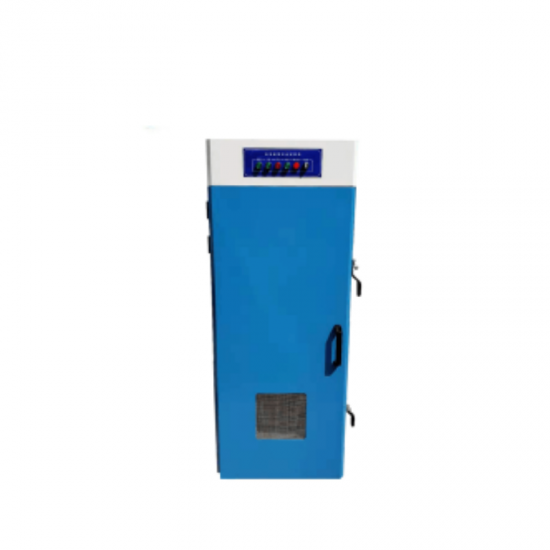A Battery Gravity Impact Tester, also known as a drop weight impact tester or simply an impact tester, is a specialized piece of equipment used to evaluate the durability and resistance of batteries against mechanical impacts. This type of testing is crucial for ensuring the safety and reliability of batteries used in various applications ranging from consumer electronics to electric vehicles and energy storage systems. The gravity impact test simulates real-world scenarios where batteries might be subjected to drops or impacts during handling, transportation, or usage.
Battery Gravity Impact Test Machine
Key Features
1. Drop Weight Mechanism
- Utilizes a controlled drop weight that can be adjusted for different masses and heights to simulate varying impact forces. This allows for precise control over the intensity of the impact applied to the battery sample.
2. Adjustable Height and Speed
- Users can set specific drop heights and speeds according to the test standards or custom requirements. This flexibility enables the simulation of different impact scenarios.
3. Impact Surface
- Equipped with a rigid impact surface designed to deliver consistent and repeatable impacts. Some models may offer interchangeable surfaces to mimic different real-world conditions.
4. Data Acquisition System
- Advanced testers come with integrated data acquisition systems that record key parameters such as impact force, acceleration, and deformation. This data is essential for analyzing the performance and failure modes of the tested batteries.
5. Safety Features
- Includes robust safety features like protective enclosures, emergency stop buttons, and sometimes remote operation capabilities to ensure operator safety during testing.
6. Environmental Controls (Optional)
- Some high-end models may include environmental chambers to conduct tests under controlled temperature and humidity conditions, simulating extreme environments.
Applications
- Research and Development: Used in the development phase of new battery technologies to assess their structural integrity and design flaws.
- Quality Control: Essential for quality assurance processes in manufacturing facilities to ensure all batteries meet specified impact resistance standards before reaching the market.
- Regulatory Compliance: Helps manufacturers comply with international safety standards and regulations governing battery safety, such as UN/DOT 38.3, IEC 62133, and others.
Considerations When Choosing a Battery Gravity Impact Tester
- Test Requirements: Ensure the tester meets your specific test protocols including drop height, weight, and impact surface characteristics.
- Battery Size and Type: Select a tester capable of accommodating the size and shape of batteries you intend to test.
- Budget Constraints: Costs vary based on capacity, features, and brand. Determine which features are necessary versus those that are optional.
- Ease of Use: Look for user-friendly interfaces and straightforward setup procedures to facilitate efficient testing.
- Maintenance and Support: Consider the availability of spare parts, customer support, and maintenance services offered by the manufacturer.
By carefully evaluating these factors, you can choose a Battery Gravity Impact Tester that not only fits your current needs but also supports future growth and compliance requirements. Ensuring the mechanical robustness of batteries through rigorous impact testing is critical for enhancing product safety and reliability across numerous industries.
While specific manufacturers of Battery Gravity Impact Testers might not be as widely advertised as other types of testing equipment, companies specializing in battery testing solutions or general-purpose impact testing equipment often provide customizable options suitable for battery impact testing. It's advisable to consult directly with suppliers or manufacturers to find a solution tailored to your specific requirements.





 Online service
Online service +86 13174506016
+86 13174506016
